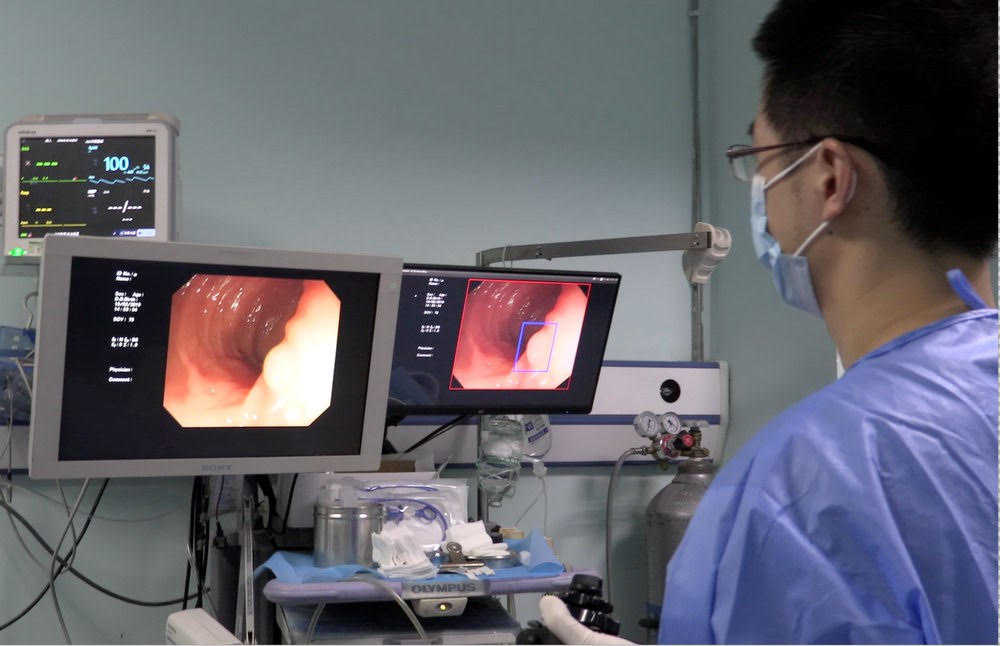Chronic inflammatory conditions like rheumatoid arthritis (RA), psoriatic arthritis (PsA), and ulcerative colitis (UC) significantly impact seniors, causing pain, reduced mobility, and diminished quality of life. Rinvoq (upadacitinib), a Janus kinase (JAK) inhibitor, has become a vital treatment option for adults, including those aged 65 and older, when other therapies, such as tumor necrosis factor (TNF) blockers, are ineffective or intolerable. By targeting the inflammatory pathways driving these conditions, Rinvoq offers relief, with clinical trials showing 43–48% symptom clearance in RA patients. However, its use in seniors, particularly those over 50 with cardiovascular risk factors, requires caution due to risks like higher mortality, infections, and liver enzyme changes. This article details Rinvoq’s mechanism of action, its effectiveness for seniors, associated risks, and guidance for monitoring side effects. While Velsipity (etrasimod) is approved for UC, its limited data in seniors and lack of indication for RA or PsA make Rinvoq the primary focus here.
Rinvoq’s Mechanism as a JAK Inhibitor
Rinvoq is an oral, once-daily medication that selectively inhibits JAK enzymes, specifically JAK1, which play a critical role in the inflammatory process. JAK enzymes transmit signals from cytokines—proteins that drive immune responses—through the JAK-STAT pathway, triggering inflammation, joint damage, and tissue destruction in conditions like RA, PsA, and UC. By blocking JAK1, Rinvoq disrupts these signals, reducing the production of inflammatory mediators and alleviating symptoms such as joint pain, swelling, and gastrointestinal distress.
Unlike biologics, which target specific cytokines (e.g., TNF or IL-6) and require injections, Rinvoq’s oral administration and broad anti-inflammatory action make it a convenient option for seniors, who may face challenges with injectable therapies. Approved by the FDA for moderate to severe RA, PsA, UC, Crohn’s disease, ankylosing spondylitis, and other inflammatory conditions, Rinvoq is typically prescribed at 15 mg daily for RA and PsA, with a 45 mg induction dose for UC followed by 15 or 30 mg maintenance. Its targeted mechanism addresses the underlying inflammation driving chronic diseases, offering seniors a chance to regain function and comfort.
Read more: The Ultimate Guide to Botox for Forehead Wrinkles and Crow's Feet
Effectiveness in Seniors
Rinvoq’s efficacy has been rigorously evaluated in clinical trials, demonstrating significant symptom relief across its indications, which is particularly relevant for seniors managing debilitating conditions.
-
Rheumatoid Arthritis (RA): In the SELECT phase 3 trials, involving over 4,300 RA patients, Rinvoq 15 mg daily achieved 43–48% symptom clearance (ACR20 response, indicating 20% improvement in symptoms) by week 12, compared to 14–28% with placebo. Many patients reported reduced joint pain, stiffness, and swelling within 1–2 weeks. Long-term data from a 3-year extension study showed sustained low disease activity or remission, critical for seniors to prevent joint destruction and maintain mobility. RA affects over 1.3 million Americans, with prevalence increasing with age, making these outcomes highly relevant.
-
Psoriatic Arthritis (PsA): In SELECT-PsA trials, Rinvoq improved joint pain, skin symptoms (psoriasis), and enthesitis (tendon inflammation) by week 12, with 47% of patients achieving ACR20 compared to 23% on placebo. For seniors with PsA, which often coexists with osteoarthritis, Rinvoq reduces disability, allowing for activities like walking or hobbies.
-
Ulcerative Colitis (UC): In U-ACHIEVE and U-ACCOMPLISH trials, Rinvoq 45 mg induction for 8 weeks achieved clinical remission in 26–31% of UC patients, with maintenance doses (15 or 30 mg) sustaining remission at 52 weeks. For seniors with UC, who face higher risks of complications like colorectal cancer, symptom control improves quality of life and reduces hospitalization.
Seniors benefit from Rinvoq’s rapid onset and sustained efficacy, which help manage symptoms that exacerbate age-related challenges like frailty or comorbidities. A 67-year-old retiree with RA, shared on WebMD’s patient reviews, noted that Rinvoq reduced her morning stiffness, enabling her to resume gardening after failing on Humira. Such outcomes highlight Rinvoq’s potential to enhance independence in older adults.
Risks for Seniors, Especially Those Over 50 with Heart Disease Risk Factors
While effective, Rinvoq’s immunosuppressive action poses serious risks, particularly for seniors over 50 with cardiovascular risk factors (e.g., hypertension, diabetes, smoking history). The FDA’s boxed warnings highlight these concerns, based on studies of Rinvoq and other JAK inhibitors:
-
Increased Mortality: A postmarketing study of tofacitinib (another JAK inhibitor) showed higher all-cause mortality in RA patients over 50 with at least one cardiovascular risk factor compared to TNF blockers. This risk, potentially applicable to Rinvoq, is concerning for seniors, who often have multiple comorbidities.
-
Cardiovascular Events: Major adverse cardiovascular events (MACE), such as heart attack and stroke, were more frequent in patients over 50 with risk factors, especially smokers. Rinvoq’s prescribing information advises caution in this group, with the European Medicines Agency (EMA) restricting its use in patients over 65 unless no alternatives exist.
-
Blood Clots: Rinvoq increases risks of deep vein thrombosis (DVT), pulmonary embolism (PE), and arterial thrombosis, particularly in seniors with cardiovascular risk factors. Symptoms like leg swelling or shortness of breath require immediate attention.

-
Serious Infections: By suppressing the immune system, Rinvoq raises risks of infections like tuberculosis (TB), shingles, pneumonia, and opportunistic fungal infections. Seniors, with age-related immune decline, are more vulnerable. In trials, serious infections occurred in 3.1% of Rinvoq-treated RA patients versus 2.3% on placebo. Pre-treatment screening for TB and hepatitis B/C is mandatory.
-
Cancer Risk: Rinvoq may increase risks of lymphoma and non-melanoma skin cancer, with higher rates observed in JAK inhibitor studies among patients over 50 with risk factors. Seniors, especially smokers, should prioritize regular skin checks.
-
Liver Enzyme and Cholesterol Changes: Rinvoq can elevate liver enzymes (ALT, AST) and cholesterol levels, signaling potential liver damage or increased cardiovascular risk. In trials, 15–20% of patients experienced elevated liver enzymes, and seniors with pre-existing liver or kidney issues face higher risks.
Common side effects, affecting over 2% of patients, include upper respiratory infections, nausea, cough, fever, acne, headache, and weight gain. Seniors may experience these more acutely due to reduced organ function or polypharmacy.
Special Considerations for Seniors
Seniors face unique challenges with Rinvoq:
-
Comorbidities: Heart disease, diabetes, or chronic lung conditions amplify risks of MACE, clots, and infections. Rinvoq should be reserved for cases where benefits outweigh risks.
-
Polypharmacy: Rinvoq interacts with potent immunosuppressants (e.g., azathioprine) and should not be combined with other JAK inhibitors or biologics. Methotrexate or corticosteroids are permitted but require monitoring.
-
Organ Function: Reduced liver or kidney function may necessitate dose adjustments (e.g., 15 mg for RA in renal impairment). The EMA advises against Rinvoq in severe liver disease.
Monitoring Side Effects
To ensure safety, seniors on Rinvoq require regular monitoring:
-
Blood Tests: Monthly or quarterly tests to check cholesterol, liver enzymes, and blood cell counts for anemia, neutropenia, or liver damage. Elevated cholesterol may require statins, while significant liver changes may warrant dose reduction or discontinuation.

-
Infection Vigilance: Monitor for fever, cough, or skin changes (e.g., shingles rash). Pre-treatment TB and hepatitis screenings, plus shingles vaccination, are recommended.
-
Cardiovascular and Clot Symptoms: Regular blood pressure checks and prompt reporting of chest pain, leg swelling, or shortness of breath.
-
Cancer Screenings: Annual dermatology visits for skin cancer and discussions about lymphoma risk, especially for smokers.
A 70-year-old UC patient on Drugs.com reported stopping Rinvoq after elevated liver enzymes were detected during routine tests, underscoring the importance of monitoring. Seniors should maintain lab schedules and report symptoms promptly.
Rinvoq vs. Velsipity
Velsipity, approved for moderate to severe UC, modulates sphingosine-1-phosphate receptors to reduce inflammation but lacks indications for RA or PsA. Its side effects (e.g., bradycardia, infections) and limited senior-specific data make it less relevant for this discussion. For UC, Rinvoq’s broader evidence base and oral administration may be preferred, but Velsipity could be considered if Rinvoq is unsuitable. Seniors with UC should consult gastroenterologists to compare options.
Guidance for Seniors and Caregivers
To optimize Rinvoq treatment, seniors should:
-
Engage with Providers: Discuss risks versus benefits, focusing on comorbidities, smoking history, and alternatives like DMARDs (e.g., methotrexate) or biologics. Ask: “What monitoring will I need?” or “Are there safer options for my heart condition?”
-
Track Symptoms: Keep a journal of side effects (e.g., fever, nausea) and symptom improvements to inform doctor visits.
-
Adhere to Monitoring: Attend all lab appointments and follow vaccination recommendations (e.g., shingles, pneumonia).
-
Explore Support: AbbVie’s patient assistance programs (e.g., AbbVie Contigo) can offset costs, as Rinvoq’s price varies by insurance.
-
Involve Specialists: Rheumatologists or gastroenterologists can tailor treatment plans, adjusting doses based on disease activity.
Conclusion
Rinvoq, as a JAK inhibitor, offers seniors a powerful tool to manage chronic inflammation in RA, PsA, and UC, with 43–48% symptom clearance in RA trials and rapid relief that enhances mobility and quality of life. Its oral administration and sustained efficacy make it a valuable option for older adults failing TNF blockers. However, risks like higher mortality, cardiovascular events, blood clots, infections, and liver changes are significant, especially for those over 50 with heart disease risk factors. Through diligent monitoring—blood tests, infection screenings, and cancer checks—seniors can use Rinvoq safely. By collaborating with healthcare providers, tracking symptoms, and exploring support programs, seniors can harness Rinvoq’s benefits while minimizing risks, achieving better control over chronic inflammation in their golden years.














